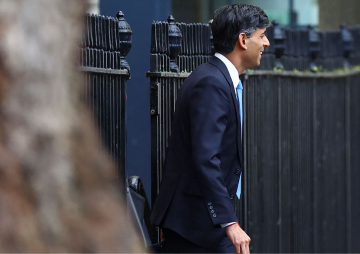For a country as self conscious of its past as India, culture and civilization are alluring themes. In recent weeks two themes have surfaced which may attract attention. One idea has been placed in the public square by Justice Markandey Katju, who, as Chairman of the Press Council, has energised discourse on many subjects.
The other theme is taking a more cavernous route in the corridors of the Ministry of Culture.
Justice Katju's idea stems from his abiding interest in Urdu poetry. There was hardly a judgement of his at the Supreme Court which was not laced with choice Urdu couplets. He thought the great Urdu poet Ghalib deserved to be honoured posthumously with a Bharat Ratna.
The other idea on the anvil is to observe 2012 as the centenary year for Pandit Madan Mohan Malaviya, founder of the Benaras Hindu University.
There is in the Ministry of Culture a "Centenary Wing" which tosses up centenary candidates.
While the Ghalib suggestion, though quaint, has no controversy attending it, there will be more than one view on Pandit Malaviya's centenary idea. For example his being in the vanguard of the Hindu Mahasabha. The case in his favour would be dressed up with other details: his having founded prestigious English dailies like the Leader. But his somewhat aggressive Hinduism which grew as he anchored himself firmly in the Hindu Mahasabha could invite contention.
There are folks who would spend time justifying the Mahasabha and Pandit Malaviya's contribution as it's President, but will the Congress party be comfortable projecting this association?
It can be argued that the centenary sought to be observed is of a national figure, not a Congress leader. Fair enough, but the ruling party's position is a delicate one, particularly on the eve of state and national elections when it is fiddling around with percentages in reservations that would attract a reluctant Muslim vote.
Varanasi is where Malaviya spent long years. And yet, what irony, he would have been unfamiliar with Ghalib's epic on Varanasi, Chiragh-e-dair or the Temple Lamp.
Ghalib compares Varanasi to a beautiful woman who sees her face in the mirror of the "Ganga". Here people make soulful music out of conch shells. "This truly is the Kaaba of Hindustan."
Is it an unrealistic demand that Justice Katju has posted for discussion? Some faint hearted Congress leaders may consider the idea unrealistic because the Congress is mortally afraid of doing anything that might register adversely with the majority vote. But how small minded can we get? Would a posthumous honour to one of the world's great poets, whose secularism remains unparalleled, and whose adoration for Hindustan is part of his poetry, annoy anybody?
When a modernizer like Sir Sayyid Ahmad Khan asked Ghalib to write a preface to Ain-e-Akbari or laws of Emperor Akbar, Sir Sayyid did not expect a reprimand.
Ghalib had just returned from Calcutta, smitten by modern administration, miracles of science like the wireless. He advised Sir Sayyid to disentangle himself from "Laws" which had been overtaken by new systems. It is quite astonishing this openness to new ideas by a man who lived all his life in old Delhi.
It is always foolish to compare apples and oranges, but in this context Malaviya emerges as the sort of reactionary Ghalib might have been uncomfortable with. Purshottam Das Tandon was Malaviya's intellectual soul mate and one Jawaharlal Nehru was not comfortable with. His father, Motilal Nehru, was outrageously frank. He said that the Malaviya and Lala Lajpat Rai "gang" was being aided by big money "to capture the Congress".
There was always in the Congress a streak of Hindu revivalism. Nehru stood in total opposition to this tendency. The undisputed leader of Indian Muslims, therefore, until his death in 1964 was Jawaharlal Nehru. This solid support walked out on the Congress en masse after the Babari Masjid demolition. Since that date the party has been trying to lure the community back, proceeding two steps forward on Sachar Committee and three steps back on the Ranganath Mishra Committee.
A confused party has no courage either to respond to Justice Katju nor to debate candidates worthy of centenary celebrations.
Primarily the party lacks conviction. Hence the tactic: Sheikh bhi khush rahey; shaitan bhi naraaz na ho (keep the clergy and devil equally pleased). This is a recipe for falling between stools.
(Saeed Naqvi is a Distinguished Fellow at Observer Research Foundation)
The views expressed above belong to the author(s). ORF research and analyses now available on Telegram! Click here to access our curated content — blogs, longforms and interviews.




 PREV
PREV

